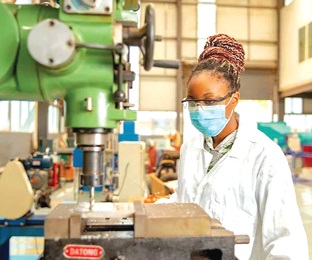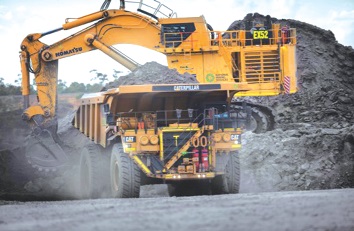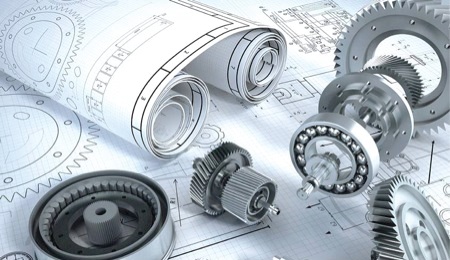
Imagine world without motion
A world without motion will mean no ships, sub-marines, trains, cars, airplanes, motorbikes, motors, pumps, concrete mixers, concrete pumps, cranes, fans, hair dryers, blenders, refrigeration systems, bicycles, tricycles, roller coasters etc.
The movement of fluids (liquids and gases) for processing and for use will all not be possible without motion. Industrialisation, international trade and logistics will not be possible without motion.
Advertisement
The world has been shaped by force and motion since Adam. The study of physics, tells us that work = force x distance.
The world of work is about force and motion (work=force x distance). Mechanical engineering is the study of work, how to transform energy into work and how to make the world of work easier.
Mechanical engineering practice has, therefore, been at the heart of human evolution since Adam and Eve. The windmill, water turbine and steam engine contributed more to the industrial revolution than any other single invention.
The first and second industrial revolution (1760 – 1830) and (1870 – 1914), respectively, were powered by major mechanical inventions, such as, steam engine, spinning jenny and sewing machines, just to name a few.
These inventions were birthed by mechanical engineering practitioners. Effectively the world of work will be arduous and poorer without mechanical engineering practice.
Mechanical engineering and other engineering disciplines help to transform the earth’s resources into useful products and services that serve mankind. Engineering is, therefore, essentially a value creation and addition process.
Power
To borrow the famous quote “Power is nothing without control”. The incorporation of electrical and electronics engineering into mechanical designs has provided unprecedented levels of precision and control for the delivery of tremendous forces and speeds for work.
Electrical and mechanical engineers have, therefore, become Siamese twins in the design, manufacturing, and maintenance of machinery (cars, motorbikes, ships, rockets, blenders etc.).
This inseparable collaboration has created a new engineering discipline known as mechatronics. Power generation is another area of collaboration. It is for this that the Volta River Authority(VRA) and other power generators employ more mechanical and electrical engineers than any other engineering practitioners.
Except for Solar Photovoltaic (PV) power, all other forms of power generation begin with motion. For example, Hydro-dams, Gas Turbines, Nuclear Plants, Wind, Solar-thermal, geothermal etc.
Mechanical Engineering
Unfortunately, many persons know little about mechanical engineering and hardly appreciate what it is about. This write-up should hopefully provide some insight into mechanical engineering and how the practice can contribute to national development.

Mechanical engineering incorporates a wide range of scientific knowledge and mathematics into design because the products must endure harsh environments and constantly overcome friction during operation. The requirements for detail and measurements are extremely rigorous.
Mechanical engineering practice requires high precision, accuracy, and specific maintenance of tolerance. It is these demands and the number of subjects included in the programme that makes the training and practice of mechanical engineering very challenging.
Any society that masters mechanical engineering advances in leaps and bounds as mechanical engineering provides the “muscle” for work.
In the construction, mining, manufacturing, agriculture, oil and gas industries, mechanical engineering provides all the heavy lift, drive and power required.
In the world of work, the mechanical engineering practitioner is hardly seen or heard. He/she is in the engine room of a ship, on the factory floor ensuring that the conveyors are working. They are in the power generation plant or under the bonnet of a car. They are behind a PC deploying software to design new things. They are involved in research and simulation of new designs.

The Columbia University in the City of New York states the following about Mechanical Engineering.
“Mechanical engineering is a diverse subject that derives its breadth from the need to design and manufacture everything from small individual parts and devices (e.g., microscale sensors and inkjet printer nozzles) to large systems (e.g., spacecraft and machine tools).
The role of a mechanical engineer is to take a product from an idea to the marketplace. In order to accomplish this, a broad range of skills are needed.
The mechanical engineer needs to acquire particular skills and knowledge. He/she needs to understand the forces and the thermal environment that a product, its parts or its subsystems will encounter; to design them for functionality, aesthetics, and the ability to withstand the forces and the thermal environment they will be subjected to; and to determine the best way to manufacture them and ensure they will operate without failure. Perhaps the one skill that is the mechanical engineer’s exclusive domain is the ability to analyse and design objects and systems with motion.
To put it simply, mechanical engineering deals with anything that moves, including the human body, a very complex machine. Mechanical engineers learn about materials, solid and fluid mechanics, thermodynamics, heat transfer, control, instrumentation, design and manufacturing to understand mechanical systems.
Specialised mechanical engineering subjects include biomechanics, cartilage-tissue engineering, energy conversion, laser-assisted materials processing, combustion, MEMS, microfluidic devices, fracture mechanics, nanomechanics, mechanisms, micropower generation, tribology (friction and wear) and vibrations.
The American Society of Mechanical Engineers (ASME) currently lists over 36 technical divisions, from advanced energy systems and aerospace engineering to solid-waste engineering and textile engineering.” Unquote
The practice of mechanical engineering in Ghana pre-dates Ghana. Mechanical engineering practice was introduced during the colonial era and provided the greatest means and support for the exploitation of the natural resources in the Gold Coast. The railway, mining and timber industries being the main targets.
Ghana’s bid for industrialisation post-independence was driven largely by mechanical engineering practice. The subsequent collapse of these industries including the Railway, Dry Docks, Black Star Shipping Line, the sugar, match, soap making factories, Ghana Airways, car assembly plants, Ever-Ready Battery factory etc. These led to huge job losses for mechanical engineering practitioners in Ghana. Mechanical engineering practice remains on the decline in Ghana as efforts at industrialisations remain unsuccessful.
A mechanical engineering student in a mechanical workshop
Movement of fluids such as oil and gas, fuel, water, and all others are areas that engage the attention of mechanical engineering practitioners.
The design and installation of heating ventilation and air-conditioning (HVAC) systems is one of the least known areas of practice associated with mechanical engineering.


These systems determine the quality of air in enclosed spaces and has direct bearing on health; that is Ghana’s infectious disease centre will have to be shut down immediately if the HVAC system breaks down because it cannot operate without it.
All efforts must therefore be made to ensure effective maintenance of the HVAC systems installed. These HVAC systems cannot be replaced with the common window or split units.
The major difference being that “Central Airconditioning” as these systems are commonly called have air-movers or air handling units which ensure the removal of stale air and the introduction of fresh air into the spaces.
For the infectious disease centre, these air handling units, include complex filtration systems that kill germs and reduce the potential for the spread of infectious diseases.
The recent COVID-19 pandemic and the ongoing Ukraine-Russia crisis have emphasised the need for every nation to be self-sufficient in certain basic items. When the COVID-19 crisis increased the demand for ventilators around the world,
Prof. Fred McBagonluri of Academic City College and many others were inspired and provided model designs.
Unfortunately, these efforts have not received any support from the government or the incapacitated private sector. Further developments have possibly been curtailed until the next pandemic or crisis. Industrialisation requires continuous investment in research and development.
Many years ago, Prof. Ivan Addae-Mensah gave a beautiful lecture at the Great Hall of the University of Ghana, Legon, about Ghana’s Education and asked if we were doing the right things at the right time?
In his submission, he suggested that there was no clear link between our education and our world of work and proposed that we needed a rethink.
What conscious policies can be put in place to encourage banks to lend to manufacturing industries as opposed to importers?
Simply wishing and hoping that Ghana will become industrialised and self-sufficient in certain basic consumables will not happen. These wishes must be translated into a conscious and consistent effort by successive governments.
The linkages between the promotion of Science, Technology, Engineering, and Mathematics (STEM) education and policies for industrialisation must be established and evident.
If food processing is prioritised, efforts such as identifying, and reservation of lands for farming, water resources for irrigation, mechanising and automation of the production system must be seen and encouraged through government policies. For example, lands on either side of the Black, White and Red Volta may be strategically targeted and reserved for large scale all year-round irrigation farming because of their proximity to water sources.
Dams for holding water during the Bagre Dam spills and heavy rains can all be designed and created. Without such clear linkages established it is almost of no value encouraging people into food processing.
Parents will not encourage their children to take up STEM education if they do not see any potential for them in the future. Children who see their parents with STEM education struggling to pay their fees and put food on the table are not going to be inspired to follow the same path.
Providing incentives for children to take up STEM without creating opportunities for them through conscious and consistent polices amounts to wasted effort.
If we are to grow and become industrialised, the training of mechanical engineering practitioners and the provision of opportunities must be given special attention.
The writer is the Vice-President, Ghana Institution of Engineering. E-mail:[email protected]



